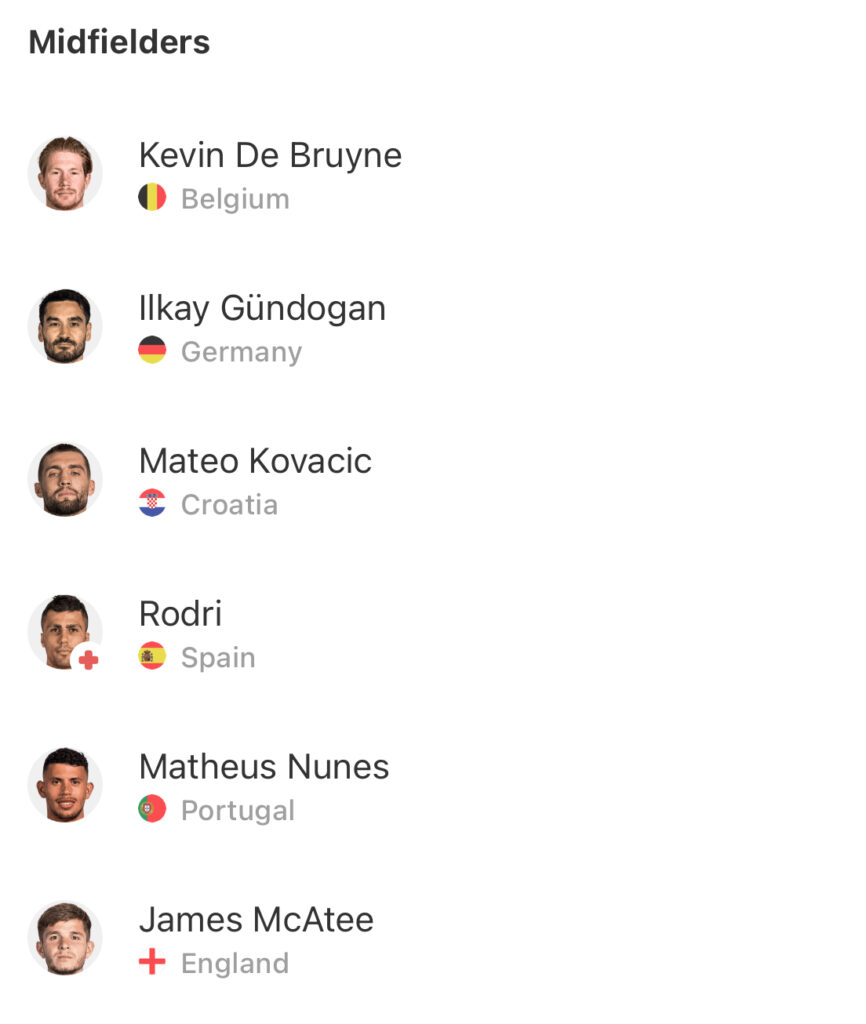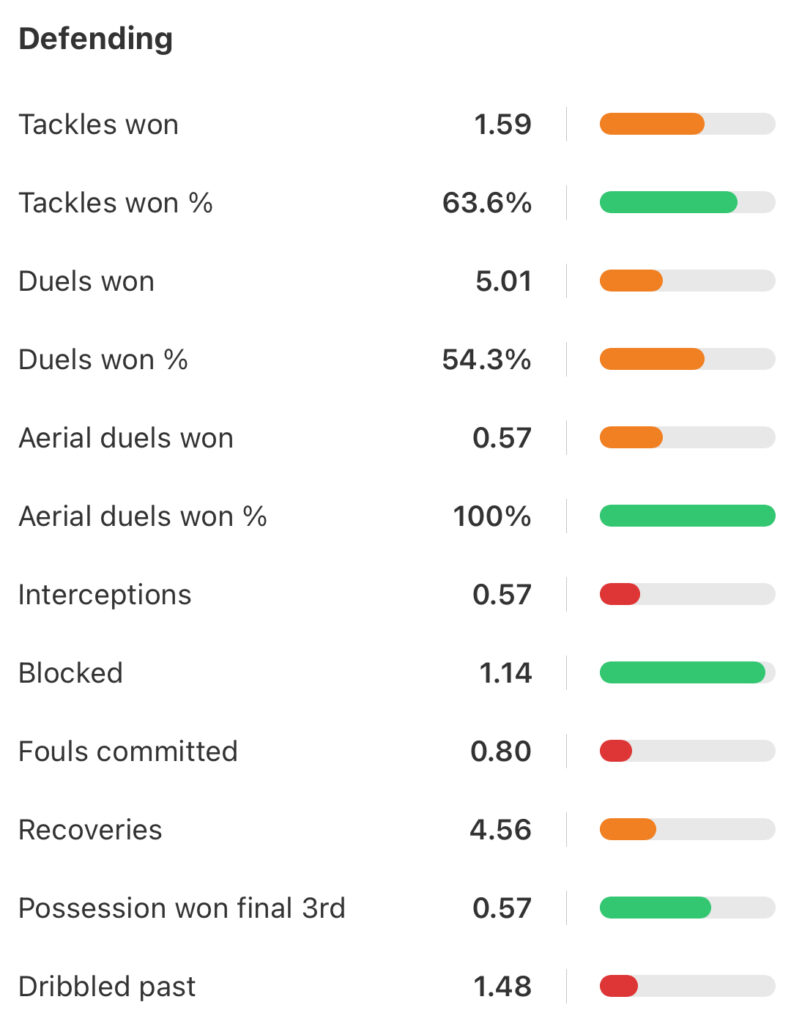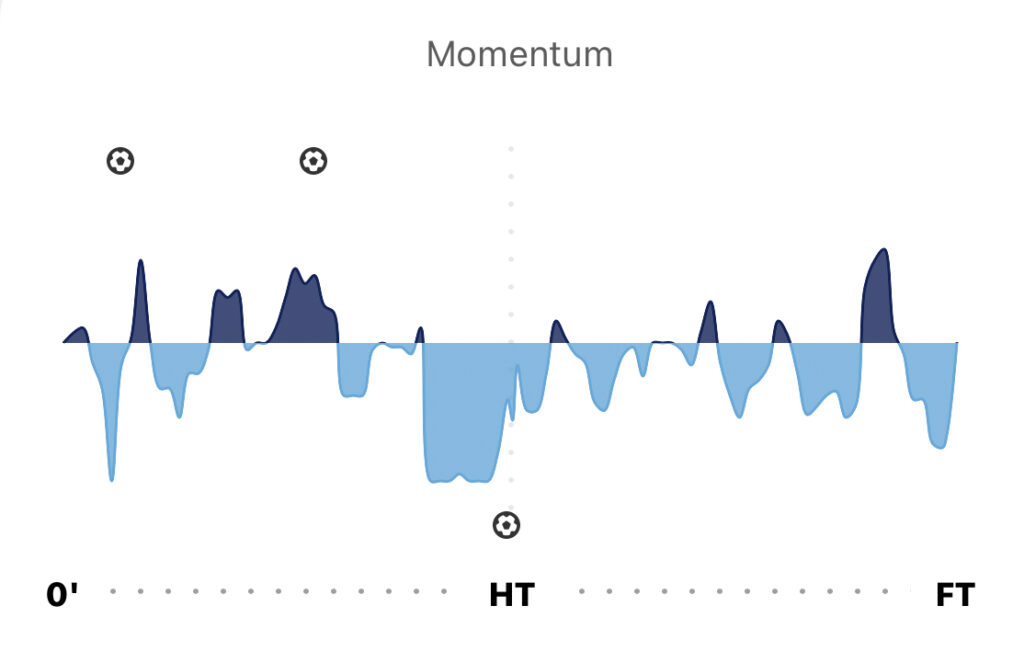As Manchester City prepare to face Sporting CP tonight, they will aim to avoid suffering three consecutive competitive defeats in the same season for the first time in well over six years. 2-1 defeats to Tottenham Hotspur and Bournemouth have seen them knocked out of the EFL Cup and drop away from the top of the English Premier League standings in the last week, and they clearly do not look as strong as they were earlier this year.
By Neel Shelat
There has been a lot of debate in recent weeks about whether Rodri deserved the Ballon d’Or or if Vinícius Júnior was hard done by, but the Spaniard’s case has been made even stronger this season. While his exceptional performances led Manchester City and Spain to many titles last term, the impact of his absence on the English champions has perhaps spoken the loudest.
City’s results did not immediately drop off after his season-ending injury in September, but their performances in most matches had significant causes for concern. Of course, any team will naturally drop off a notch after losing the best player in the world, but the extent to which Rodri’s absence has affected Manchester City indicates that some deeper problems have been unmasked.
Subpar squad-building
Quite simply, Manchester City would not be in the position they currently find themselves in if they had a like-for-like replacement for Rodri. Their tactical system depends on having an exceptional defensive midfielder who can control proceedings, and while no one in the world can do that to the same level as the Spaniard, there are a good few players who can still do a decent job. However, none of them are in Manchester City’s current squad.
In fact, City do not have any natural lone number six in their ranks other than Rodri. They have been forced to fashion a makeshift solution for the time being from what is an already thin midfield contingent.

So far, Pep Guardiola has used Mateo Kovačić in Rodri’s position and attempted to keep the overall tactical system unchanged. However, the Croatian international is relatively weak when it comes to winning duels and defending in transition, which is a huge drop-off from the elite-level work that Rodri did week in and week out.

Kovačić also has certain deficiencies when it comes to his possession-play going forward, so all things considered, he is not a good Rodri replacement. Of course, it is not his fault that his weaknesses are being exposed in an unfamiliar position, so Manchester City’s squad-building is the real issue here.
This is quite surprising given how generally excellent City have been in this respect. Undoubtedly, their massive budgets are a big plus, but the key to their recent success has been their smart and sensible investment to bring in the right amount of players in the right positions and have adequate depth to challenge on multiple fronts. They seem to have weirdly taken a turn in the wrong direction this summer as their squad has been left too thin with other key positions such as striker also lacking any clear backup. The Premier League champions must now hope that incoming director of football Hugo Viana can bring them back on track ahead of the next season.
Besides restoring some squad depth, Viana will also have to think about Manchester City’s ageing squad. Their average squad member age this season is the highest it has ever been under City Football Group ownership. Of course, part of this can be attributed to ageing stars such as Kevin De Bruyne and Kyle Walker who are both well into their 30s, but their recent transfer business has been the main factor as their average age jumped by two years from 25.7 last season to 27.7 currently.
This summer, for example, City sold Julián Alvarez to Atlético Madrid for a club-record €75 million – a good deal in isolation. However, effectively replacing him by bringing back a 33-year-old İlkay Gündoğan and not restoring any depth in the striker position was a very questionable move, and could well hurt them if something were to happen to Erling Haaland.
All things considered, the chief underlying issue affecting Manchester City this season is their subpar squad-building.
Concerning performances
As aforementioned, Manchester City’s performances tailed off right after Rodri’s injury even if results took a while to catch up.
For instance, Guardiola’s side were quite lucky to get away with a 3-2 win over Fulham in early October as they conceded lots of big chances on the break. Ultimately, it was the exact same issue that cost them in the latest loss to Bournemouth.

As detailed above, the root of the issue on the pitch stems from the absence of Rodri and Kovačić’s weaknesses in the position. As a result, Manchester City are conceding transitions and counterattacks far more often than they used to, thus allowing opponents to create more and better chances. They can also fall into a bit of a vicious cycle this way as they are forced to commit more bodies in attack if they concede, making themselves even more vulnerable to counterattacks.
Some other issues have also been exposed to a greater extent. Guardiola’s pressing schemes can tend to be flawed occasionally, but this largely does not hurt his side too much as his exceptional defenders buy him enough time to work on a fix. Without a solid defensive midfielder, though, his side can be instantly punished as they were against Tottenham last week.

Despite all of these issues, Manchester City are only two points off the top of the league. Although their underlying numbers haven’t been great, the good news is that Liverpool have not been much better and Arsenal have been even worse, so the title remains more than up for grabs.
(Cover image from IMAGO)
You can follow every Manchester City game on FotMob – with deep stats, xG, and players ratings. Download the free app here.
